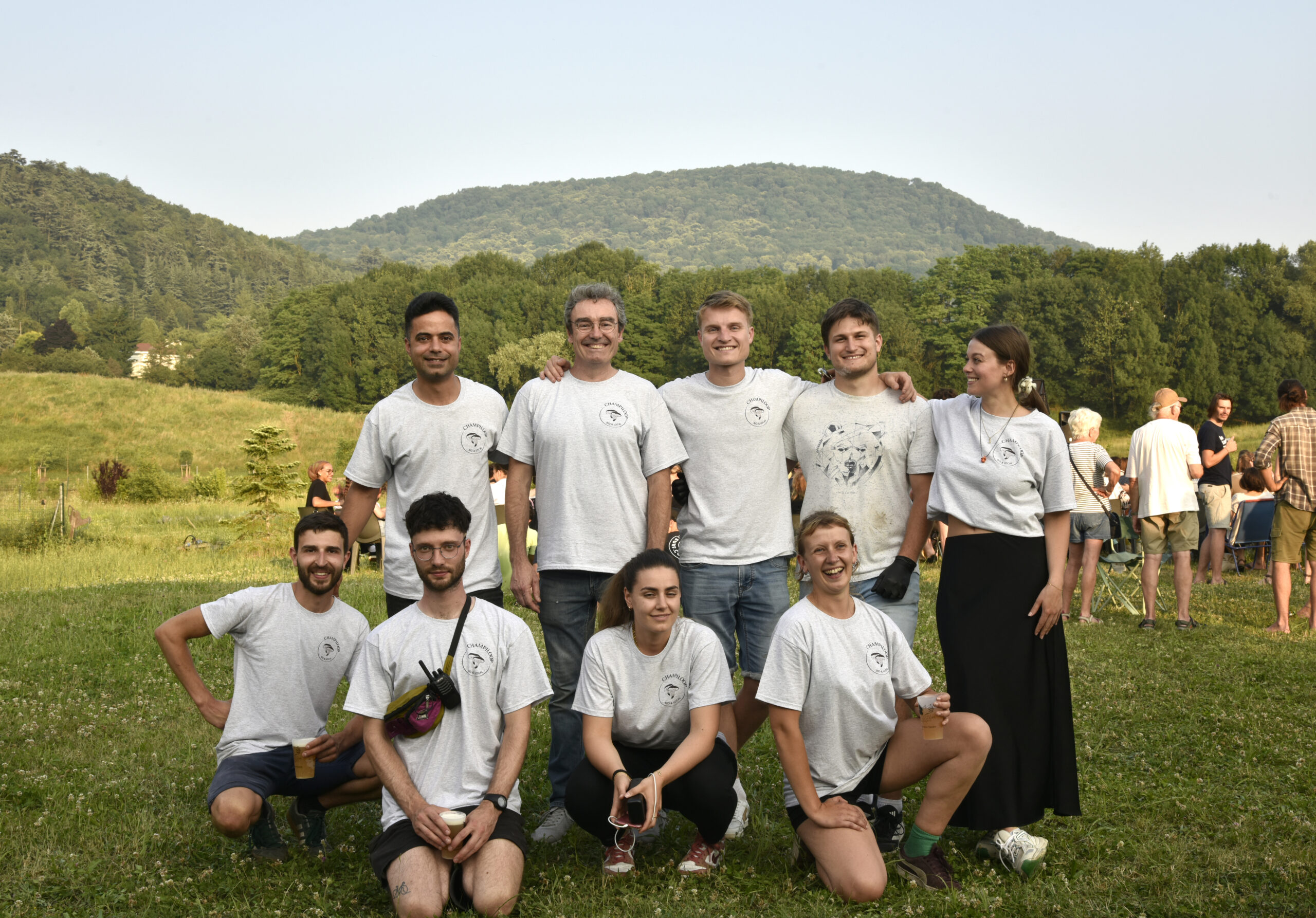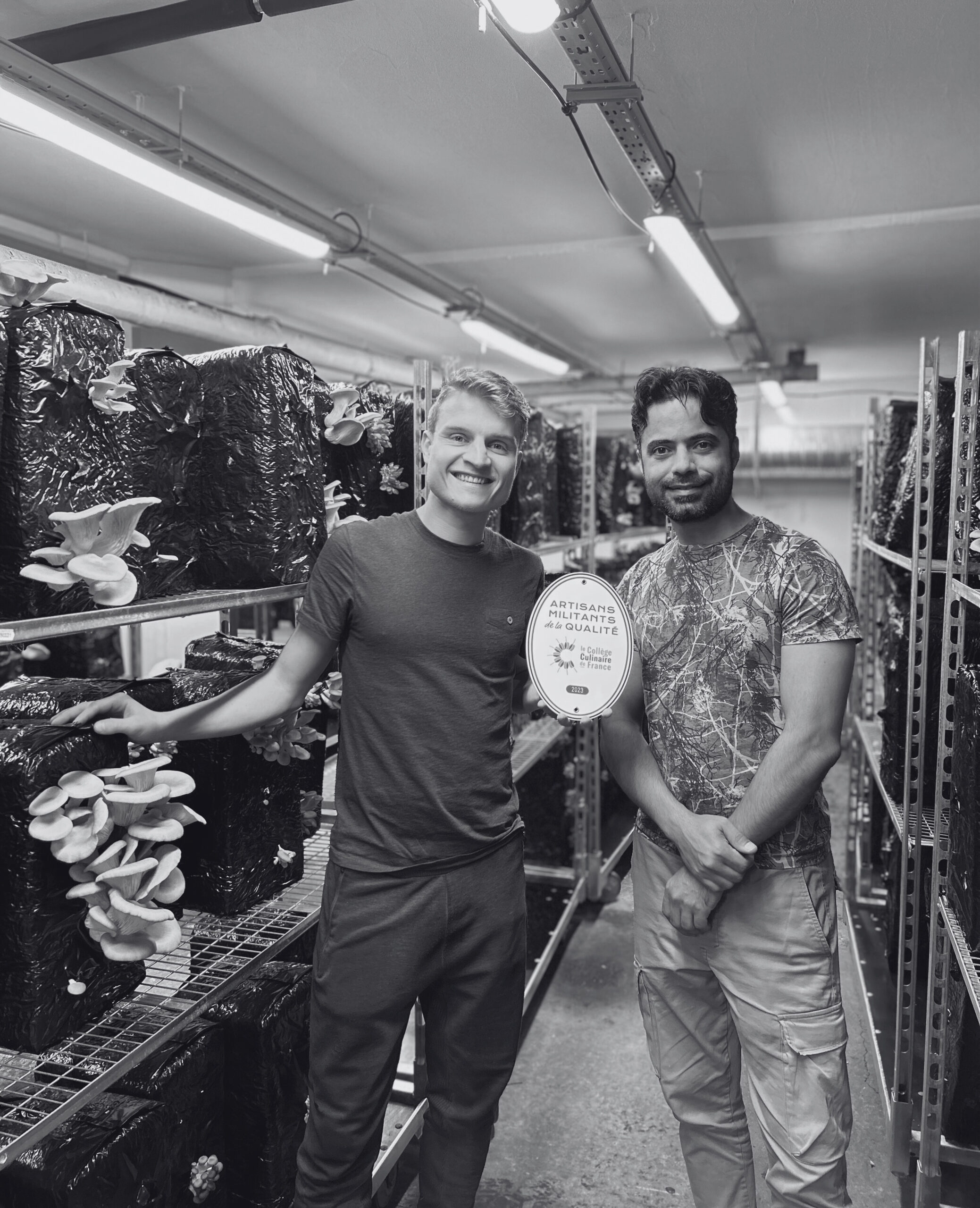
Maxime Boniface
The virtuous circle of mushroom farming
Hamid Sailani and Maxime Boniface are the founders of Champiloop. The company’s story began in 2018, when Hamid Sailani joined the GERM association as a young agricultural engineering graduate. With prior experience in Iran’s mushroom sector, he decided to create his own mushroom farm in 2019. In 2020, he was joined by Maxime Boniface, a recent graduate from Grenoble Ecole de Management (GEM). Together, the Champiloop team committed to creating sustainable urban agriculture. Their vision is inspired by circular economy principles and biomimicry. Today, Champiloop embodies a model of local and ethical mushroom production.
Hi Maxime,
How the idea for Champiloop came about?
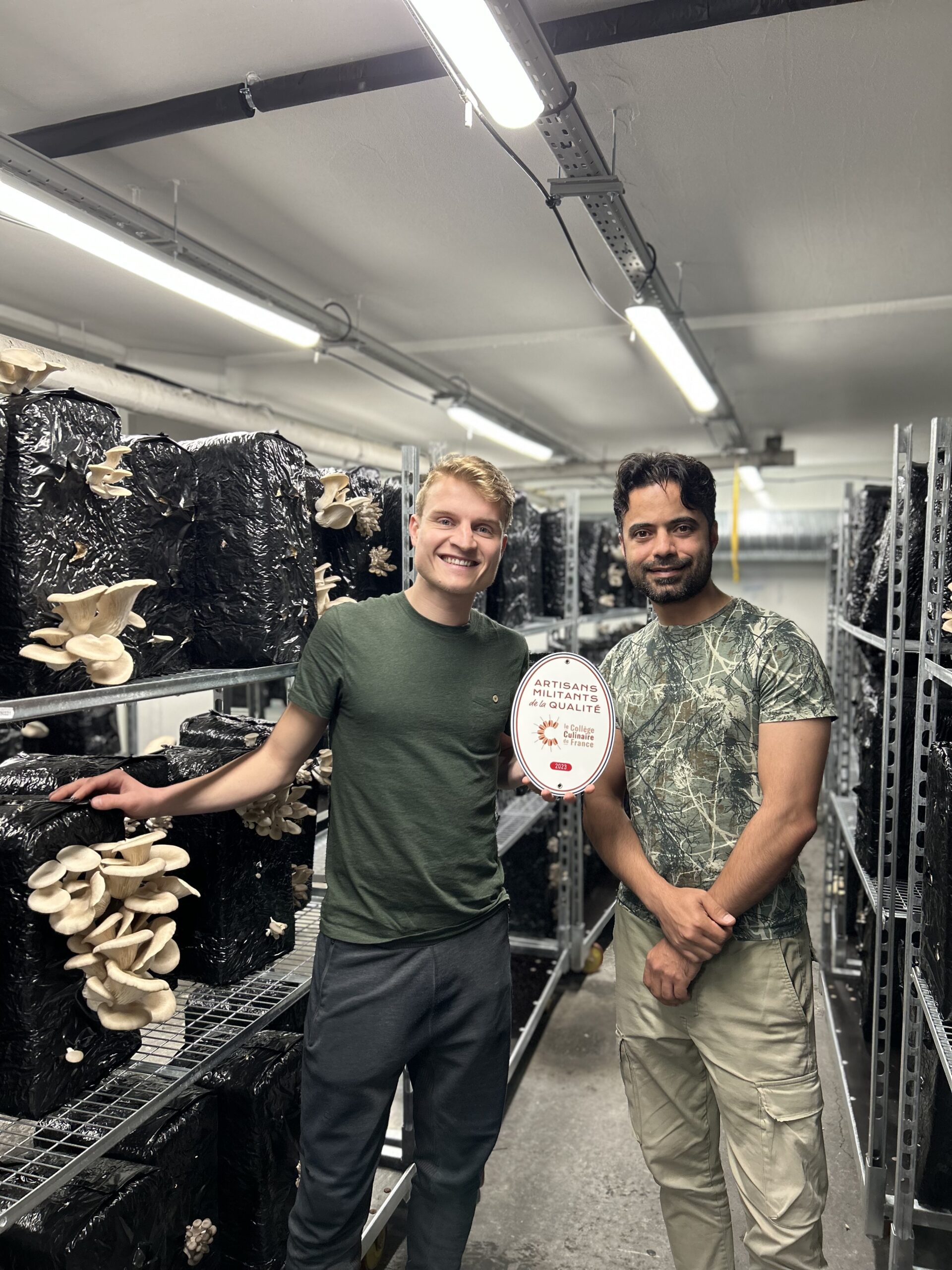
Champiloop's founders (Maxime Boniface on the left, Hamid Sailani on the right)
Champiloop is first and foremost the story of a meeting. On one side, you have Hamid Sailani, an agronomist trained in Iran, who continued his studies in biology, ecology and environment in France. That’s when he revived a project close to his heart: mushroom cultivation. Supported by Pépite — a student entrepreneurs’ network in Grenoble — he developed his project and joined a community mushroom farm as a volunteer. In 2019, he took over the operation with the ambition of creating his own job… and his own substrates!
On my side, I had just graduated from GEM, with the desire to launch a social impactful business. I was quickly drawn to mushrooms: they grow on by-products (like coffee grounds, sawdust…), allow for the implementation of a circular economy, and address major issues like food, biodiversity, and access to healthy nutrition.
We met through Pépite network. In late 2019, early 2020 — just before the Covid crisis — we decided to join forces. Our ambition: to create a business with strong social and environmental impact, by rehabilitating urban spaces to produce organic mushrooms through short supply chains.
Can you explain how The Blue Economy book by Gunter Pauli inspired your vision?
Gunter Pauli is a Belgian entrepreneur who advocates for a new kind of economy: the blue economy, inspired by the living world. In The Blue Economy, he promotes a zero-waste model, where production relies on natural resources and their virtuous reuse.
One example: instead of throwing away coffee grounds, you can use them as substrate to grow mushrooms. That way, you go from one single job (selling coffee) to multiple ones: waste recovery, agriculture, food processing. You reduce waste, create jobs, and generate value.
I discovered this book in 2019, while looking for an impactful project idea. It was a real lightbulb moment. It opened my eyes to the possible synergies between economy, ecology, and innovation.
What are Champiloop’s main goals?
We first aim at proving it’s possible to build a business with both social and environmental impact, while remaining economically self-sufficient.
We also rehabilitate abandoned urban spaces. Today, we operate two sites: a former 19th-century icehouse and a disused car park — both transformed into mushroom farms. It’s a way of breathing new life into forgotten places.
We produce several tons of organic mushrooms every month. It is not only an educational project, we also aim at feeding people, creating agricultural jobs, and offering our team a fulfilling and empowering work environment. We’re very happy with the momentum we’ve built with our team.
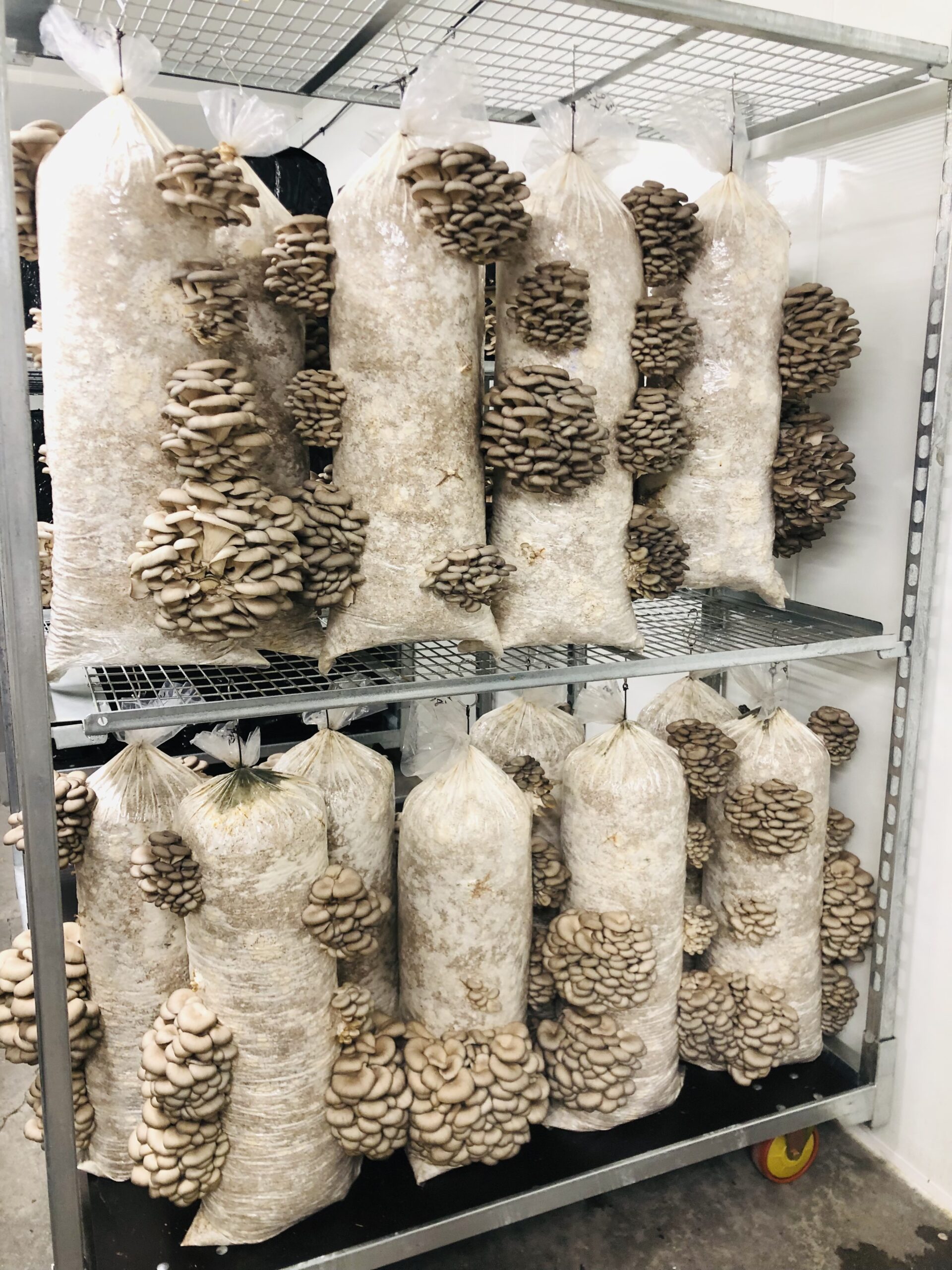
Our products are sold through short supply chains, mainly to restaurants and shops with whom we have close relationships. We also regularly host events to meet consumers and raise awareness around local and sustainable food.
We also want to promote a food transition: cooking at home, consuming raw, local, seasonal products. And beyond that, to showcase the full potential of mushrooms and mycelium. I even dedicated my thesis to the mycelium economy, which we believe has a promising future.
Because mushrooms go far beyond the plate: they can be used to make insulation, decontaminate soil, or even replace industrial materials. We want to raise awareness of these uses and inspire new initiatives.
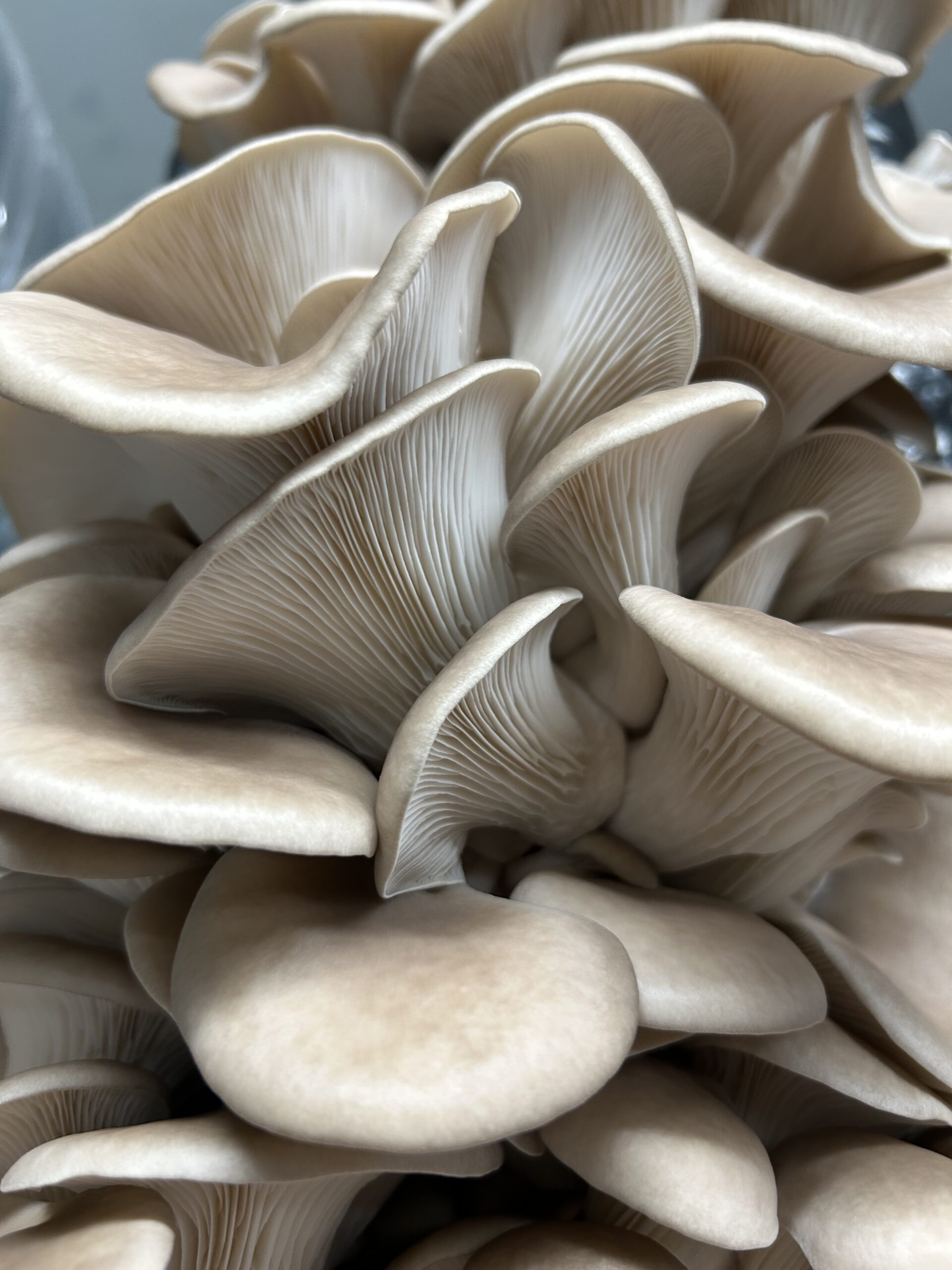
How does the Champiloop’s mushroom production process work? What sets it apart from traditional methods?
Like most producers, we grow our mushrooms on a substrate — a support made from organic matter. But our unique feature is that we’re based in an urban setting and produce a large part of our own substrates.
Specifically, we buy straw or agricultural by-products (walnut husks, rapeseed, sunflower residues…) directly from farmers. These materials are then processed at our farm through pasteurization, inoculation, incubation, and then fruiting.
This sets us apart from other oyster mushroom producers in France. There are only two national substrate suppliers (in Brittany and Allier). By producing our own substrates, we drastically reduce transportation, which is more ecological and local.
Another benefit: it creates jobs. We’ve doubled the size of our team and developed true artisanal expertise around mushroom cultivation.
What do you envision for the future of Champiloop? Do you have any specific projects or ambitions you’d like to realize?
Our main focus is to strengthen our model, further root our production locally, and stay true to our values. Of course, we’re exploring new projects… but for now, we’re keeping them under wraps. The most important thing is to keep moving forward, in line with our mission.
